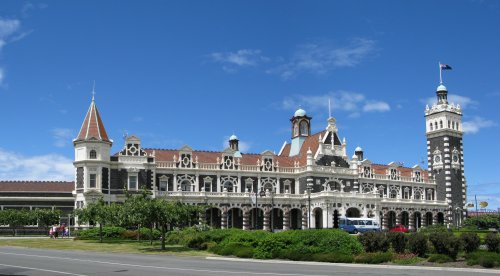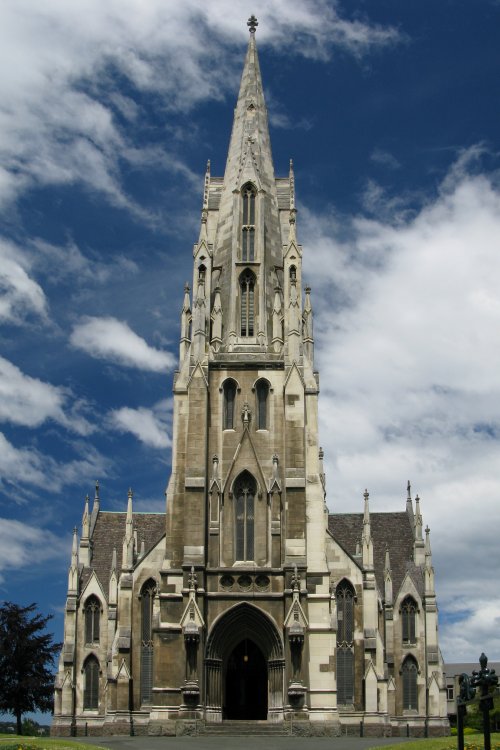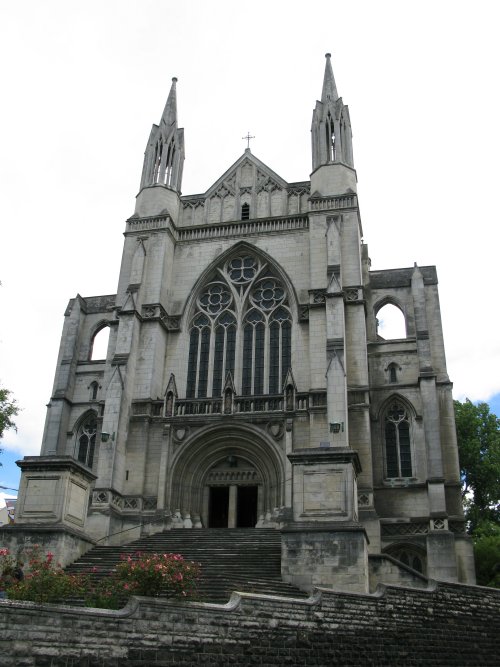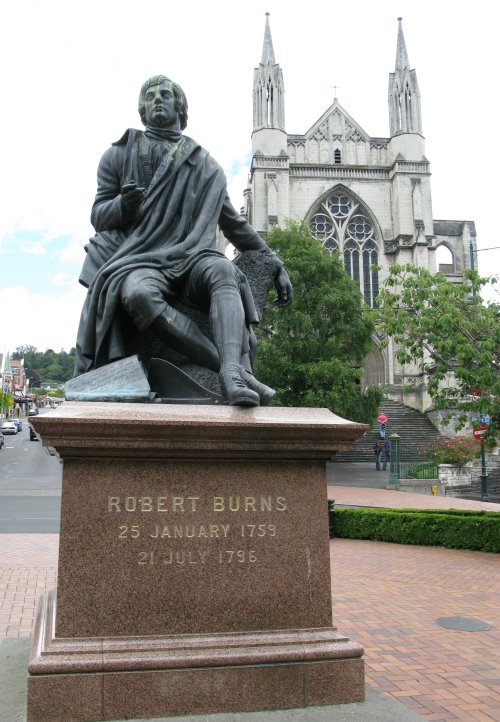Dunedin

No, you don't have to ride the bus naked, they simply offer cheap travel throughout New Zealand.
The journey took around 4½ hours, travelling through some of the south island's amazing scenery and arriving at Dunedin Railway Station.
The station's ornate Flemish Renaissance-style architecture features white Oamaru limestone facings on black basalt rock. The size and grandiose style of the station earned architect George Troup the nickname of Gingerbread George.
The booking hall features a mosaic floor of almost 750,000 tiles of Royal Doulton porcelain. The one kilometre main platform is the country's longest and every year in October becomes what is probably the world's longest catwalk, for the South Island's main fashion show. Interestingly only a scenic tourist train now uses the station.
Taking a stroll through the city I discovered the impressive First Church of Otago. This grand church was completed in 1873.
The Octagon is Dunedin's city centre. In the heart of the Octagon is St. Pauls Cathedral, built by the London architects Sedding and Wheatley.
Nearby is a statue of Robert Burns. Dunedin has the highest proportion of people of Scottish descent in New Zealand; one of the founding fathers was Burns's nephew Thomas Burns.
Another interesting fact: Baldwin Street in Dunedin, according to the Guinness Book of Records, is the steepest street in the world.
My visit to Dunedin was short. That evening I went to the airport and flew back to Auckland.

Dunedin Railway Station

The First Church of Otago

St. Pauls Cathedral

The statue of Robert Burns with St. Pauls in the background